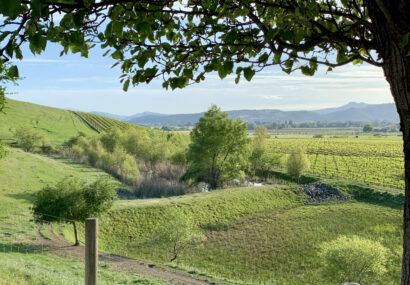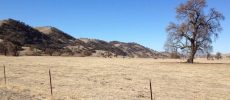
By Brian Hamilton and Merdith Nikkel
On September 11, 2020, Congressman John Garamendi introduced a bill to amend the 2014 Water Infrastructure Finance and Innovation Act (WIFIA), WIFIA Improvement Act of 2020 (H.R. 8217, 116th Cong. (2020)). WIFIA provides low-interest loans for water infrastructure projects with a maximum 35 year payoff period. If enacted, the bipartisan bill would amend WIFIA to extend the payoff period for certain long-term water infrastructure projects to 55 years. The bill would also clarify that WIFIA applies to projects owned by the U.S. Bureau of Reclamation (Bureau) but operated and maintained by local agencies.
History of the Water Infrastructure Finance and Innovation Act
Enacted in 2014, WIFIA established a program to fund the construction of water infrastructure projects with low-interest, long-term loans. The U.S. Environmental Protection Agency (EPA) administers the WIFIA loan program in partnership with the Bureau. Eligible borrowers include local, state, and tribal governments, the federal government. Private entities may also benefit from WIFIA if the entity participates with a public sponsor. Eligible projects include a wide spectrum of water infrastructure projects, including projects eligible under the Clean Water State Revolving Fund and the Drinking Water State Revolving Fund; energy efficiency projects for drinking water and wastewater facilities; repair, rehabilitation, or replacement of treatment works, community water systems, or aging water distribution or waste collection systems; desalination, alternative water supply, and water recycling projects; drought prevention, reduction, or mitigation projects; purchase of property integral to an eligible project or to mitigate environmental impacts of a project; and certain pollution control projects.
A WIFIA loan features a fixed interest rate that is established at the time of the loan’s closing. If a borrower receives multiple disbursements over a span of years, the borrower keeps the same fixed rate. The fixed interest rate is equal to the U.S. Treasury rate of a similar maturity on the date of the loan’s closing, even if the borrower only has a AA or BBB rating. The date of maturity, thus the interest rate, is based on the weighted average life of the loan, not the loan’s actual maturity date. This generally results in a lower interest rate because the weighted average life of the loan is usually shorter than the loan’s maturity date. The loan repayment period is the earlier of either: 1) 35 years after substantial completion of the project or 2) the useful life of the project. The long repayment period allows the borrower to make smaller payment amounts throughout the life of the loan.
The loans only finance up to 49 percent of the cost of a proposed project. Congressional appropriations provide money to cover estimated losses for the projects; otherwise, the loans are funded by and repaid to the Treasury. The funds appropriated by Congress thus have a significant multiplier effect on the total amount of money invested in water infrastructure projects.
A number of California projects have already benefited from WIFIA, including a groundwater replenishment system for the Orange County Water District, along with a number of wastewater treatment and recycling facilities throughout the state.
A Bipartisan Bill Seeks to Amend the Water Infrastructure Finance and Innovation Act
On September 11, 2020, Representative John Garamendi introduced a bill titled the WIFIA Improvement Act of 2020 (H.R. 8217, 116th Cong. (2020)). The WIFIA Improvement Act has bipartisan co-sponsors, including California Representatives T.J Cox, Jim Costa, Doug LaMalfa, and Josh Harder. To date, the WIFIA Improvement Act has been referred to the House Transportation and Infrastructure Subcommittee on Water Resources and Environment, but no further action has been taken by the House of Representatives.
The WIFIA Improvement Act would amend the provision of WIFIA that provides that the maturity date of the loan is the earliest of either the useful life of the project or 35 years from substantial completion of the project. Instead, if a project has a useful life of more than 35 years, the loan’s maturity date is 55 years from the date of substantial completion of the project. If a project has a useful life of less than 35 years, the loan’s maturity date is 35 years. Extending the repayment period to 55 years will reduce annual debt service payments by as much as 40 percent. The WIFIA Improvement Act would also clarify that loans can be used to fund repairs and improvements to transferred works owned by the Bureau but repaired and maintained by local agencies.
Congressman Garamendi has pointed to the Sites Reservoir Project as an example of a project that would benefit from the extension of the loan repayment period to 55 years. Congressman Garamendi also claims that clarifying that WIFIA applies to federally owned but locally maintained and operated facilities would enable financing for the improvements to and modernization of the Central Valley Project, including the C.W. “Bill” Jones Pumping Plant. Co-sponsor Representative Dan Newhouse asserts that the WIFIA Improvement Act would provide similar benefits to his constituents in central Washington.
Conclusion and Implications
The WIFIA Improvement Act would expand WIFIA to allow financing for projects with longer useful lifespans and would clarify that WIFIA applies to federally owned and locally operated projects. The stated purpose of the WIFIA Improvement Act is to unlock long-term, low-interest financing for two of California’s most important water infrastructure projects:. construction of Sites Reservoir and modernization of pumps for the Central Valley Project. The WIFIA Improvement Act boasts bipartisan support, but its fate—including passage through Congress and signature by the President—remains to be seen. The full text and history of H.R. 8217 is available online at: https://www.congress.gov/bill/116th-congress/house-bill/8217?s=1&r=18



